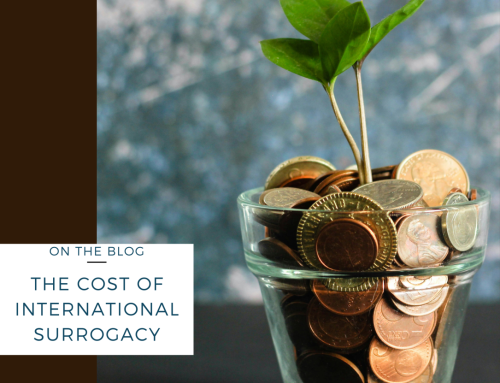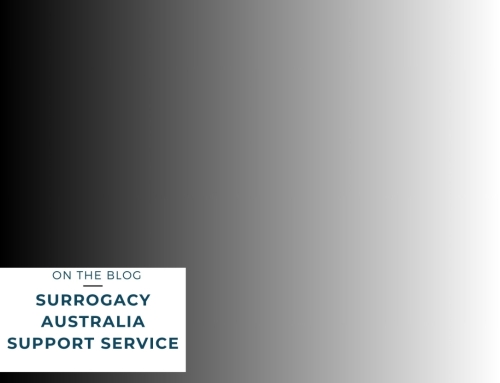There’s a few heroes in the story of surrogacy – but none more unassuming than the surrogate’s partner. Our partners don’t ask to go down this path, and the rewards for them are few and far between. But their support is crucial, and without it, most of us wouldn’t be able to carry a baby for someone else. There is no ‘i’ in surrogacy – it’s a team effort, and the surrogate’s partner is as much part of the team as the surrogate herself.
Surrogate partners, including my husband Troy and Emmy’s husband Danny, and other surrogate partner episodes – both of whom have shared their experiences in the Podcast – are two such partners who have can give insight into what it’s like when your partner announces that she wants to carry a baby for another family.
If you are new to surrogacy, you can read about how to find a surrogate, or how to become a surrogate yourself. You can also download the free Surrogacy Handbook which explains the processes and options. Have you thought about joining Surrogacy Australia’s Support Service? Read this first.
So, what is required from partners to support the surrogacy arrangement? Well, firstly, they need to be engaged enough to make a decision as a couple, whether it is right for their family. Often, the surrogate raises the idea and reads and researches surrogacy and how it works. As the idea grows in her mind, she’ll want to discuss it with her partner to see what they think. Some partners may be against the idea entirely, whilst others might be open to the idea of it but need more information and time to think about it before committing. Partners should engage enough to find out enough information to understand why their partner wants to be a surrogate, and the basic legal and counselling requirements and processes. At this stage, they might also like to consider pre-surrogacy counselling with a surrogacy counsellor, to discuss the big issues together and clarify what they want from the experience. Counselling can also assist them to determine if surrogacy is right for their family, and if so, how to find intended parents that are right for them.
I considered that, whilst egg donation was my decision and the impact on Troy was likely to be minimal, surrogacy was a whole other kettle of fish and needed both of us to be fully committed for it to go smoothly. My deal-breaker, which I kept in mind during the process and the pregnancy, was that my relationship with Troy had to remain intact beyond surrogacy. If he was unhappy, uncomfortable or unsupportive of anything, then we could not proceed until that issue was resolved. My relationship with him was more important, to us and our children, than the surrogacy itself.
From a legal standpoint, surrogate partners must be involved in the process because when the baby is born, the law presumes that the partner is also the legal parent. This includes being named on the original Birth Certificate. It means that the partner has to sign the Surrogacy Agreement. Post birth, they need to sign an Affidavit supporting the Parentage Order. Their support cannot be blase or token – it’s all-in, or not-at-all.
In practical terms, the requirements of the surrogate’s partner includes:
- Attending surrogacy counselling and undergoing a psychological assessment. The number of appointments and timing will differ in each arrangement and depending on which professionals are involved. Some can be done by Skype, whilst others must be done in person.
. - Obtaining legal advice and signing the Surrogacy Agreement. Like counselling, the amount of appointments might vary but is generally less involved than counselling and most can be done via Skype.
. - Undergoing blood tests – this will depend on clinic policy, but it is often required that surrogate partners must be tested for STIs prior to any embryo transfer.
The most important support that the surrogate’s partner will provide is during pregnancy, birth and in the fourth trimester. This includes practical support such as picking up the slack around the home and with the children, during times the surrogate is tired, unwell or heavily pregnant, and when she’s attending medical appointments. This can have an emotional and physical impact on the partner, and on the relationship between them and with the intended parents. If the partner is not fully supportive and involved in the surrogacy, the tough times during pregnancy can lead the partner to resent the surrogacy and the intended parents.
The Financial Relationship
One aspect of the surrogacy that is often delegated to the surrogate’s partner is managing the financial relationships with the intended parents. Surrogates are notorious for not asking for what they need, and for feeling guilty for burdening their intended parents. Her partner is one step removed from the pregnancy and the baby, and might be the best person to negotiate finances and ask for what the surrogate needs, on her behalf. Many surrogates report relying on their partner to take up the difficult conversations about money, so that they don’t feel that the surrogacy becomes about money.
Partner’s Needs
And what do the partners need? The intended parents should treat the surrogate and her partner as equal members of the team, and ensure they have built the relationship and trust with both of them. The partner needs to feel appreciated for the time and energy they put into surrogacy. Partners may also have trouble asking for help, so sometimes the intended parents need to be creative in how they provide support. They might offer to babysit their children so the surrogate and her partner can have a date night together, or take the children out of the house so the surrogate team can have some respite. Cooking meals and helping with housework can also alleviate pressure on the surrogate household.
Surrogate partners often worry about the impact of surrogacy on their family and the surrogate. There are physical and emotional risks with any pregnancy, let alone doing it all for someone else. Partners understandably worry about how those risks impact on their family. It is important for the partners to access supports themselves, and to talk about these fears during the surrogacy counselling. I’m a great advocate for counselling for everyone, simply as part of any wellness plan, and it can be crucial as part of a positive and smooth surrogacy journey.
The partners are also impacted by the surrogacy in other ways. They often receive similar questions to surrogates, which can be intrusive and even upsetting. Questions about how they feel about their partner carrying a baby for someone else, as well as all the usual curiosity about how a surrogate can possibly give away a baby. Partners are not immune the effects of intrusive or curiosity, and it’s important for the team to prepare themselves for how they might support each other and respond to people outside the team.
Overall, the surrogate team and the intended parents need to remember that the surrogate’s partner is as much part of the process and the team as the surrogate. Without her partner’s support, she is unlikely to be able to proceed with the surrogacy. The partner’s investment and commitment to the arrangement is crucial. And not simply for a good journey, but for the relationships that grow out of surrogacy – the partner’s relationships with the intended parents will be life-long, and is worth investing in.
Sarah has published a book, More Than Just a Baby: A Guide to Surrogacy for Intended Parents and Surrogates, the only guide to surrogacy in Australia.
You can find more information in the free Surrogacy Handbook, reading articles in the Blog, by listening to more episodes of the Surrogacy Podcast. You can also book in for a consult with me below.








